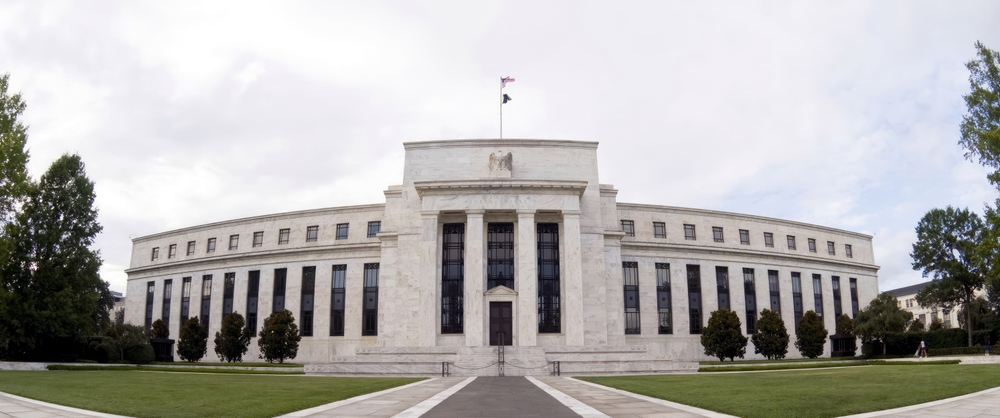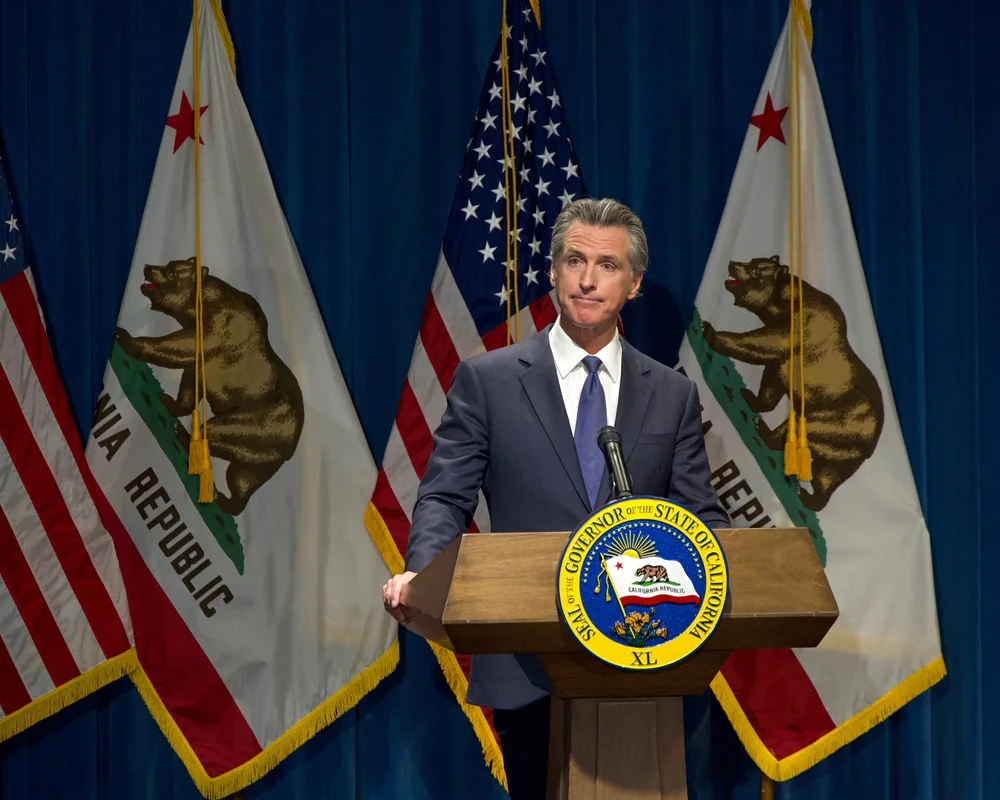
Assessing Trump's "Skinny" Budget
President Trump needs to focus more on deregulation and less on revenge.
President Trump has struck once again with a budget that will excite his supporters while raising howls of anguish from his many detractors, who see a further encroachment of their civil liberties and economic welfare by his list of ill-chosen priorities. That budget seeks some $163 billion in cuts, but it spares entirely the welfare programs on which Trump’s base depends —Medicaid, Medicare, and Social Security— all of which need desperate reform. At this point, these cuts appear to be dead on arrival, according to NPR. On the chopping block are programs that deal with basic science research and foreign aid, and any program that, in Trump’s view, smacks of wokeness. The big winners are defense and immigration.
Unfortunately, this “skinny [i.e., preliminary] budget” needs massive supplementation, which makes all immediate assessments suspect. Nonetheless, as a strong devotee of the Trump, a la carte approach, I see much to like in this budget and much to strongly oppose. The strong plusses are the efforts to get rid of Biden-era priorities. But a word of caution is in order. Many of these programs served, at least in part, sensible ends in the pre-Biden era, and these cuts smack as much of revenge as they do of prudent decision-making. But if the response is exaggerated, the targets are, for the most part, properly chosen. For example, programs that suffer from the dual sins of higher administrative costs and inferior social outcomes should be removed. In particular, Biden scored low points on all matters relating to energy, climate change, and the environment. Trump’s effort to trim down “The Low Income Home Energy Assistance Program” (LIHEAP) is salutary. This program supported inefficient energy transfers and regulations, when the correct position is to foster deregulation and growth in energy markets. Trump is also mostly right to impose a giant cut to Community Services Block Grants, which purport to “combine clean energy with affordable housing in the pursuit of both economic and environmental justice,” all code words for interventionist programs that delay much needed new facilities and upgrades in pipelines and refineries.
In general, Trump is also right to “return education to the states” by calling for, in direct federal K-12 programs, “streamlined, flexible funding directly to States so that they have the discretion to support those activities that make the most sense for their respective communities.” But at the same time, it is important to avoid targeted subsidies programs that allow states like California and New Yorks to spread their one-sided views view of climate justice and systematic racism, when the real attention should be spent in teaching young children on how to read, which is now done more effectively in states like Mississippi and Louisiana, by using phonics, than in California and New York, which are still wed to progressive policies. Much the same can be said of progressive instruction in mathematics that also steers away from the basics.
But efforts to make massive medical and health research cuts should be highly scrutinized. Trump’s definition of woke includes references to females and women, as well as words like discrimination, disparity, and diversity. Under the Biden administration, too much attention was paid to getting rid of people who disagreed with their orthodoxies. But I have no confidence in the enormous cuts, for example, that Trump wants to make in the budgets of the National Institutes of Health. At this point, according to the New York Times, the Trump agenda appears headed toward scrapping all research programs, totaling some $800 million directed toward research on L.G.B.T.Q. related diseases. If true, the policy is immoral because it cuts out research, not on DEI propaganda, but well-established programs whose benefits go beyond these specific conditions, and unconstitutional, as an unprecedented form of viewpoint discrimination forbidden by the First Amendment, for being unrelated to any legitimate scientific objective.
The cuts are especially inexcusable given that the new head of the National Institutes of Health is Jay Bhattacharya, who has been attacked from the left for deviating from the Biden orthodoxy. Think first, cut second seems like sensible advice here, as well as for the CDC and the FDA, all of which are now run by able Trump supporters. It is nonsensical to justify any shutdown of medical research because of any illicit transfer of American technology to the Wuhan Institute of Virology when the likelihood of a repeat is zero. Trump has a vengeful side, and his apparent distaste for elite universities like Harvard leads him to make silly and outrageous denunciations, cutbacks, and threats.
Turning next to the areas of budget increases, on military affairs, he has proposed a 13-percent increase in funding “to achieve peace through strength by providing the resources to rebuild America’s military,” and, at long last, to “end[] wasteful spending of taxpayer dollars on woke climate and DEI programs.” Indeed, Republicans in the Senate who think these numbers are too low are correct, considering the many years of neglect under Biden and before. But sadly, it is unlikely that any budget increase will be properly allocated if Pete Hegseth continues to mismanage the Department of Defense. Nor will a higher budget allocation stop a larger decline in American influence around the world, so long as Trump’s divisive berating of our key allies continues to drive them away. Both Canada and Australia elected anti-Trump governments because of Trump’s boorish behavior. The U.S. will find it hard to coordinate military and diplomatic activities needed to put pressure on the hostile governments that now rule Russia, China, and Iran. Ditto for his foolish initiatives on reciprocal tariffs that create economic enemies out of nations that should be our friends and further compromise military cooperation.
The same cautionary tale applies to foreign aid, which, if properly administered, can help build goodwill around the world—a commodity that Trump commonly denigrates in a misapplication of his “America First” program that invites allies to distrust us. There is, accordingly, no reason to oppose wasteful foreign aid, but when Trump slashes international foreign aid on the ground that it is improper to “dole out foreign aid dollars with no return on investment for the American people,” or worse “proposes to eliminate several of the Department of the Treasury’s international assistance programs,” including the Debt Restructuring account and contributions to agricultural assistance and food security, it is a most unwise way to fulfill “the President’s promise to put America first and eliminate wasteful foreign aid.” There are better ways to eliminate waste than to insist on putting “America first,” lest other countries reply in kind.
Finally, Trump now thinks that he has a winner on immigration. In the current 2025 budget, he is asking for a $44 billion one-year increase from $65 billion to $107 billion, with priorities that expedite deportations, build a wall, modernize the Coast Guard, and support programs abroad intended to encourage poor people to stay in their own country. The scorecard is not pretty. There is no reason to build a wall now if the current policies have succeeded in reducing the flow of illegal immigrants to a trickle by enforcing laws that Biden largely ignored. More ominously there is every reason to be concerned about expanding a savage deportation program that seeks to misuse the Alien Enemies Act of 1798 to claim that the gangs that operate in the United States constitute an “invasion” that could justify the deportation of not only Venezuelan criminal Tren de Aragua gang members, but also “all natives, citizens, denizens, or subjects of the hostile nation or government, [who are males of fourteen years and upwards].”
And why we would oust programs that are intended to help would-be immigrants stay in their home countries seems to contradict Trump’s sound policy of aiding potential immigrants to stay home. A free trade regime simplifies the importation of goods. It reduces the entrance of foreigners into this country, both legally and illegally, which creates significant management issues over which there are a myriad of bona fide disagreements. The support of free trade produces gains: people get higher wages without leaving their homes and families, and the United States gets superior goods and services and a greater ability to manage a legal immigrant population. Foreign aid is not a dirty word. Corporations well understand that it is good sense for them to make gifts of goods and services to their local communities to build goodwill that pays for itself in the future.
The great tragedy here is that Trump only speaks of us/them conflicts that make enemies out of friends. His silly remarks on tariffs, as distilled into a one-sentence rant on Truth Social on April 8, 2025, tell the tale:
I’m proud to be the President for the workers, not the outsourcers; the President who stands up for Main Street, not Wall Street; who protects the middle class, not the political class; and who defends America, not trade cheaters all over the globe.
It is not just that he is wrong on every economic point that he raises. He expresses such disdain for so many people that, for his occasional shrewdness, he gets mired down in needless acrimony. Budgets are only one arena in which his attitude can trip him up. Intangibles matter. Trump talks not just to his preferred audience but also to his many detractors. He has to learn that you attract more flies with honey than vinegar.
Richard A. Epstein is a senior research fellow at the Civitas Institute. He is also the inaugural Laurence A. Tisch Professor of Law at NYU School of Law, where he serves as a Director of the Classical Liberal Institute, which he helped found in 2013. Epstein is also the James Parker Hall Distinguished Service Professor of Law Emeritus and a senior lecturer at the University of Chicago.
Economic Dynamism

The War on Disruption
The only way we can challenge stagnation is by attacking the underlying narratives. What today’s societies need is a celebration of messiness.

Unlocking Public Value: A Proposal for AI Opportunity Zones
Governments often regulate AI’s risks without measuring its rewards—AI Opportunity Zones would flip the script by granting public institutions open access to advanced systems in exchange for transparent, real-world testing that proves their value on society’s toughest challenges.

Downtowns are dying, but we know how to save them
Even those who yearn to visit or live in a walkable, dense neighborhood are not going to flock to a place surrounded by a grim urban dystopia.

The Housing Crisis
Soaring housing costs are driving young people towards socialism—only dispersed development and expanded property ownership can preserve liberal democracy.

Kevin Warsh’s Challenge to Fed Groupthink
Kevin Warsh understands the Fed’s mandate, respects its independence, and is willing to question comfortable assumptions when the evidence demands it.

Oren Cass’s Unquenchable Appetite for Regulation
Cass’s “more regulation” program is just an all-you-can-eat buffet for Wall Street and K Street.
.avif)


.avif)
.jpeg)




.jpg)


.jpg)


